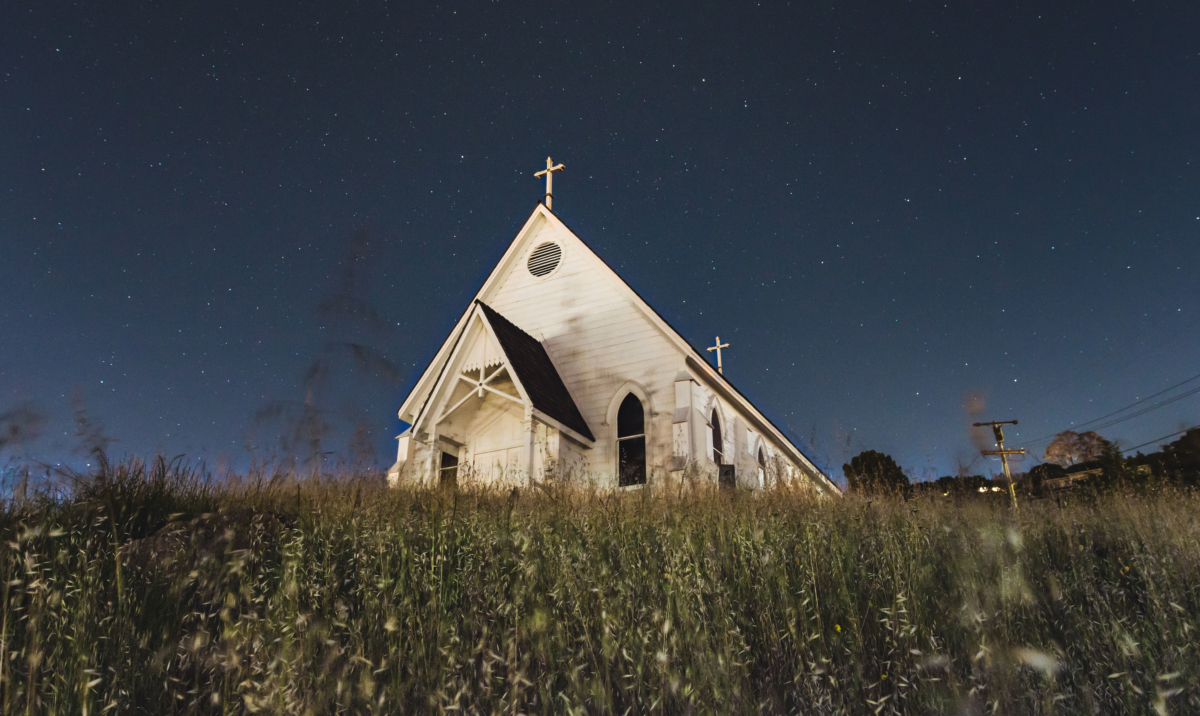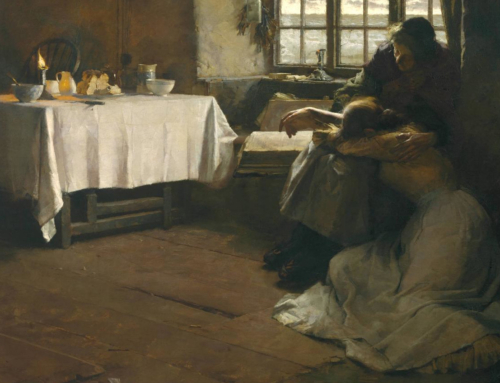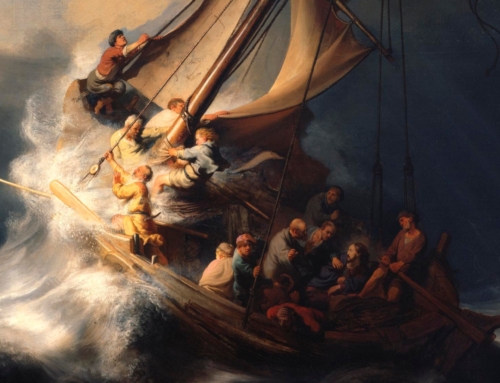Editor’s note: This is an introduction to our new series, which will spend time considering the Hillbilly Thomists’ recent self-titled album. The series will run each Tuesday and Thursday throughout the Easter season.
“Blues grew out of the need to live in the brutal world that stood ready in ambush the moment one walked out of the church.” So writes historian Greil Marcus in Mystery Train, a nonfiction work in which he explores the beginnings of rock n’ roll and what that has to do with the American experience. He profiles artists like Robert Johnson, one of the great blues guitarists and singers, who was a rambling man, sang all about it, and died young. Johnson sang of hard times without much hope. For Marcus, artists like Johnson reveal the shadow-America; the land of broken dreams; a place of discontinuity between pew and public square.
The world can be brutal, and sometimes singing the blues is the fitting response. But there’s another strain of American music, namely, bluegrass and Gospel, that sings through hard times, but with hope—hope for redemption in Christ. I think the collection of tunes on the Hillbilly Thomists’ album fits this bill. In these musical traditions, the suffering we experience when we walk out of church is viewed not as an ambush but as our way of the Cross. Of course, the Cross may feel like an ambush at times. Maybe it did for Simon of Cyrene coming in from the fields. But the Christian has the eschaton in view. He knows the drama of life has meaning because he knows the drama of salvation history—how we began, Who came to save us, and where we are headed. And by turning this drama into a song the yoke gets lighter, the mood more playful, the path ahead even brighter. We can sing through suffering.
Take the singer in the song Angel Band. “My latest sun is sinking fast. My race is nearly run.” This man is staring at death. He knows his past sins. He hears otherworldly wings—a portent of the next life. But he knows healing through the blood of Christ. He knows a better home awaits him. He longs to see his Lord and believes he will. In Just a Closer Walk with Thee, the singer has experienced toils and snares. He has faltered. But Christ bears the burden with him and for him. And it is by walking with Christ through life and precisely through the hard times that we grow closer to Jesus, our friend and savior. These songs don’t shy away from suffering. They embrace it in faith, hope, and love, and so make sense out of it. These songs are also theological. The image of man as viator, or pilgrim, is an ancient image of our walk of faith in this life. We see it throughout Scripture and in the works of Church doctors like Augustine and Aquinas. We also see it in songs like Poor Wayfaring Stranger and To Canaan’s Land in which the singer looks at his own life as a pilgrimage. Like Abram and Sarai and the Israelites out of Egypt, we too are Canaan-bound.
As well as being beautiful songs of Christian faith, these are old songs—older than the blues. They have a distinct American cultural resonance. Of course this implies a variety of influences: English hymnody of the northeast (Angel Band), Scotch-Irish fiddling of the Appalachian (St. Anne’s Reel), African-American call-and-response style of the South (Steal Away), and the jazz of New Orleans (Just a Closer Walk with Thee), which was the melting pot within the American melting pot. These different cultures influenced each other. And it’s from this cultural confluence that we get the great folk American musical traditions.
These songs are also in the public domain, which in this case means more than a mere legal category specifying lack of copyright. There’s a sense of common ownership here. The tunes are part of the musical commons where we can meet and enjoy something commonly. We can do this across generations too, which makes these traditional (from the Latin tradere: to hand down) in the proper sense. They are handed down through generations. To record and arrange a song like Amazing Grace in the twenty-first century is to collaborate with someone from the nineteenth. And this doesn’t diminish the song. Folks in the past have reinvented it, and many in the future will do the same. Good songs don’t buckle under improvisation. They welcome it. These songs have good bones. And we don’t love them just because they are familiar. They also say something true about what it means to be human and to be saved as a Christian.
The blues are real, and sometimes it feels right to sing them. But grace is amazing, and we do well to sing of it always. It was a joy to sing, play, and record these songs. They are a sign that life, with all its ups and downs, is not an ambush. It’s a pilgrimage. We’re pilgrims. Christ is with us, helping us with his grace, and his grace will lead us home.







